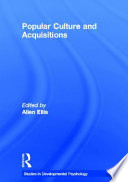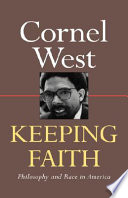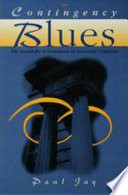 I ask not for the great, the remote, the romantic ; what is doing in Italy or Arabia; what is Greek art, or Proven9al minstrelsy; I embrace the common, I explore and sit at the feet of the familiar, the low. I ask not for the great, the remote, the romantic ; what is doing in Italy or Arabia; what is Greek art, or Proven9al minstrelsy; I embrace the common, I explore and sit at the feet of the familiar, the low.  Nature: Addresses, and Lectures - Page 93by Ralph Waldo Emerson - 1883 - 315 pagesFull view Nature: Addresses, and Lectures - Page 93by Ralph Waldo Emerson - 1883 - 315 pagesFull view - About this book
 | 1917 - 716 pages
...a small ocean." He might also have said the man is a small government. In this same address he said "Give me insight into to-day and you may have the antique and the future worlds." And within a quarter of a century after Emerson delivered his address on The American... | |
 | David Rollin Anderson, Gladys Haddad - 1992 - 332 pages
...great, the remote, the romantic, what is doing in Italy or Arabia; what is Greek art, or Provencal minstrelsy; I embrace the common, I explore and sit at the feet of the familiar, the low." Hawthorne confessed several years later, in The Scarlet Letter, his classic work which focuses on a... | |
 | Allen W. Ellis - 1992 - 164 pages
...great, the remote, the romantic; what is doing in Italy or Arabia; what is Greek art, or Provencal Minstrelsy; I embrace the common. I explore and sit...into today, and you may have the antique and future worlds.10 Proponents of popular culture argue that true insight into any era of culture can be gained... | |
 | Cornel West - 1993 - 352 pages
...great, the remote, the romantic; what is doing in Italy or Arabia; what is Greek art, or Provencal minstrelsy; I embrace the common, I explore and sit...feet of the familiar, the low. Give me insight into day and you may have the antique and future worlds.1 This artistic affirmation of everyday experiences... | |
 | Ralph Waldo Emerson - 1995 - 304 pages
...experience, so much of the wilderness have I vanquished and planted. . . ." "Life is my dictionary." "Give me insight into to-day, and you may have the antique and future worlds. ..." These and many other such familiar epigrams are eloquent expressions of the practical idealism... | |
 | James Peter Burkholder - 1996 - 470 pages
...great, the remote, the romantic; what is doing in Italy or Arabia; what is Greek art, or Provençal minstrelsy; I embrace the common, I explore and sit...would we really know the meaning of? The meal in the firken; the milk in the pan; the ballad in the street; the news of the boat; the glance of the eye;... | |
 | Cary D. Wintz - 1996 - 522 pages
...if he seek a temporary peace by the diversion of his thoughts from politics or vexed questions ... I embrace the common, I explore and sit at the feet of the familiar, the low . . . the literature of the poor, the feelings of the child, the philosophy of the street, the meaning... | |
 | David E. Shi - 1996 - 410 pages
...and he enthusiastically sanctioned their efforts: "I ask not for the great, remote, the romantic ... I embrace the common, I explore and sit at the feet of the familiar, the low." This romantic celebration of the actualities of common life, however tentative, vicarious, or celestial,... | |
 | Anita Haya Patterson - 1997 - 268 pages
...gesture is one that strategically claims the ordinary domestic world as the fit domain of the poetic: I embrace the common, I explore and sit at the feet of the familiar, the low. Give me insight to-day, and you may have antique and future worlds. What would we really know the meaning of? The meal... | |
 | Paul Jay - 1997 - 236 pages
...household life, are the topics of the time ... I ask not for the great, the remote, the romantic ... I embrace the common, I explore and sit at the feet of the familiar, the low (Emerson68-69). 7. This focus on the museum as an institution, and its concrete relation to aesthetic... | |
| |